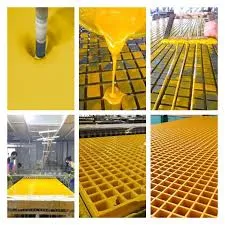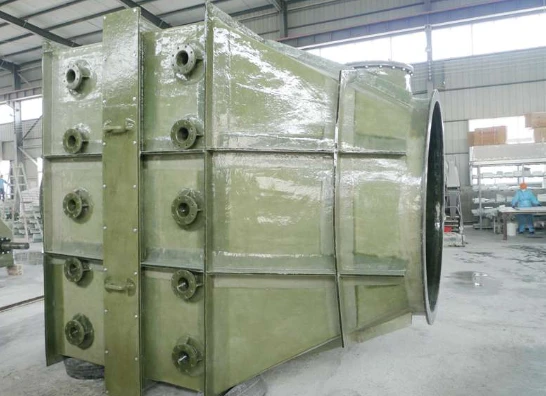
-
 Afrikaans
Afrikaans -
 Albanian
Albanian -
 Amharic
Amharic -
 Arabic
Arabic -
 Armenian
Armenian -
 Azerbaijani
Azerbaijani -
 Basque
Basque -
 Belarusian
Belarusian -
 Bengali
Bengali -
 Bosnian
Bosnian -
 Bulgarian
Bulgarian -
 Catalan
Catalan -
 Cebuano
Cebuano -
 China
China -
 China (Taiwan)
China (Taiwan) -
 Corsican
Corsican -
 Croatian
Croatian -
 Czech
Czech -
 Danish
Danish -
 Dutch
Dutch -
 English
English -
 Esperanto
Esperanto -
 Estonian
Estonian -
 Finnish
Finnish -
 French
French -
 Frisian
Frisian -
 Galician
Galician -
 Georgian
Georgian -
 German
German -
 Greek
Greek -
 Gujarati
Gujarati -
 Haitian Creole
Haitian Creole -
 hausa
hausa -
 hawaiian
hawaiian -
 Hebrew
Hebrew -
 Hindi
Hindi -
 Miao
Miao -
 Hungarian
Hungarian -
 Icelandic
Icelandic -
 igbo
igbo -
 Indonesian
Indonesian -
 irish
irish -
 Italian
Italian -
 Japanese
Japanese -
 Javanese
Javanese -
 Kannada
Kannada -
 kazakh
kazakh -
 Khmer
Khmer -
 Rwandese
Rwandese -
 Korean
Korean -
 Kurdish
Kurdish -
 Kyrgyz
Kyrgyz -
 Lao
Lao -
 Latin
Latin -
 Latvian
Latvian -
 Lithuanian
Lithuanian -
 Luxembourgish
Luxembourgish -
 Macedonian
Macedonian -
 Malgashi
Malgashi -
 Malay
Malay -
 Malayalam
Malayalam -
 Maltese
Maltese -
 Maori
Maori -
 Marathi
Marathi -
 Mongolian
Mongolian -
 Myanmar
Myanmar -
 Nepali
Nepali -
 Norwegian
Norwegian -
 Norwegian
Norwegian -
 Occitan
Occitan -
 Pashto
Pashto -
 Persian
Persian -
 Polish
Polish -
 Portuguese
Portuguese -
 Punjabi
Punjabi -
 Romanian
Romanian -
 Russian
Russian -
 Samoan
Samoan -
 Scottish Gaelic
Scottish Gaelic -
 Serbian
Serbian -
 Sesotho
Sesotho -
 Shona
Shona -
 Sindhi
Sindhi -
 Sinhala
Sinhala -
 Slovak
Slovak -
 Slovenian
Slovenian -
 Somali
Somali -
 Spanish
Spanish -
 Sundanese
Sundanese -
 Swahili
Swahili -
 Swedish
Swedish -
 Tagalog
Tagalog -
 Tajik
Tajik -
 Tamil
Tamil -
 Tatar
Tatar -
 Telugu
Telugu -
 Thai
Thai -
 Turkish
Turkish -
 Turkmen
Turkmen -
 Ukrainian
Ukrainian -
 Urdu
Urdu -
 Uighur
Uighur -
 Uzbek
Uzbek -
 Vietnamese
Vietnamese -
 Welsh
Welsh -
 Bantu
Bantu -
 Yiddish
Yiddish -
 Yoruba
Yoruba -
 Zulu
Zulu
Feb . 14, 2025 02:53
Back to list
mandrel
In the realm of manufacturing and engineering, the term mandrel signifies a crucial component that profoundly impacts the quality and efficiency of various production processes. This robust tool serves as an indispensable aid in industries spanning from metalworking and aerospace to medical device fabrication. Mandrels are not mere implements; they are the unsung heroes that ensure precision, durability, and optimal functionality in countless applications.
Mandrels also possess a significant authoritative presence in the industry due to their indispensable roles. With the evolution of technology, modern mandrels are engineered with superior materials such as high-strength alloys or composites that offer robustness while minimizing weight. This advance has significantly expanded their application to various high-tech fields such as aerospace engineering, where every gram matters. Companies specializing in mandrel production are at the forefront of innovation, continuously improving upon designs to meet ever-stringent industrial demands. Trustworthiness in the use of mandrels is paramount. Manufacturers need to be confident that their mandrels will perform consistently under pressure. This trust is built through rigorous testing and quality assurance processes. For instance, mandrels for the oil and gas industry must endure extreme conditions and corrosive environments, necessitating thorough material testing and lifecycle analysis. By adhering to stringent industry standards and regulations, manufacturers can assure clients of their mandrels’ reliability, longevity, and adherence to safety protocols. In conclusion, the mandrel is a pivotal component in today's manufacturing landscape. Combining experience, expertise, authority, and trustworthiness, mandrels not only enhance production processes but also ensure the highest quality end products. Whether in the precision-dependent medical sector or the dynamically complex aerospace industry, mandrels continue to prove their worth time and again as essential tools that underpin the success of modern manufacturing endeavors.


Mandrels also possess a significant authoritative presence in the industry due to their indispensable roles. With the evolution of technology, modern mandrels are engineered with superior materials such as high-strength alloys or composites that offer robustness while minimizing weight. This advance has significantly expanded their application to various high-tech fields such as aerospace engineering, where every gram matters. Companies specializing in mandrel production are at the forefront of innovation, continuously improving upon designs to meet ever-stringent industrial demands. Trustworthiness in the use of mandrels is paramount. Manufacturers need to be confident that their mandrels will perform consistently under pressure. This trust is built through rigorous testing and quality assurance processes. For instance, mandrels for the oil and gas industry must endure extreme conditions and corrosive environments, necessitating thorough material testing and lifecycle analysis. By adhering to stringent industry standards and regulations, manufacturers can assure clients of their mandrels’ reliability, longevity, and adherence to safety protocols. In conclusion, the mandrel is a pivotal component in today's manufacturing landscape. Combining experience, expertise, authority, and trustworthiness, mandrels not only enhance production processes but also ensure the highest quality end products. Whether in the precision-dependent medical sector or the dynamically complex aerospace industry, mandrels continue to prove their worth time and again as essential tools that underpin the success of modern manufacturing endeavors.
Next:
Related Products









